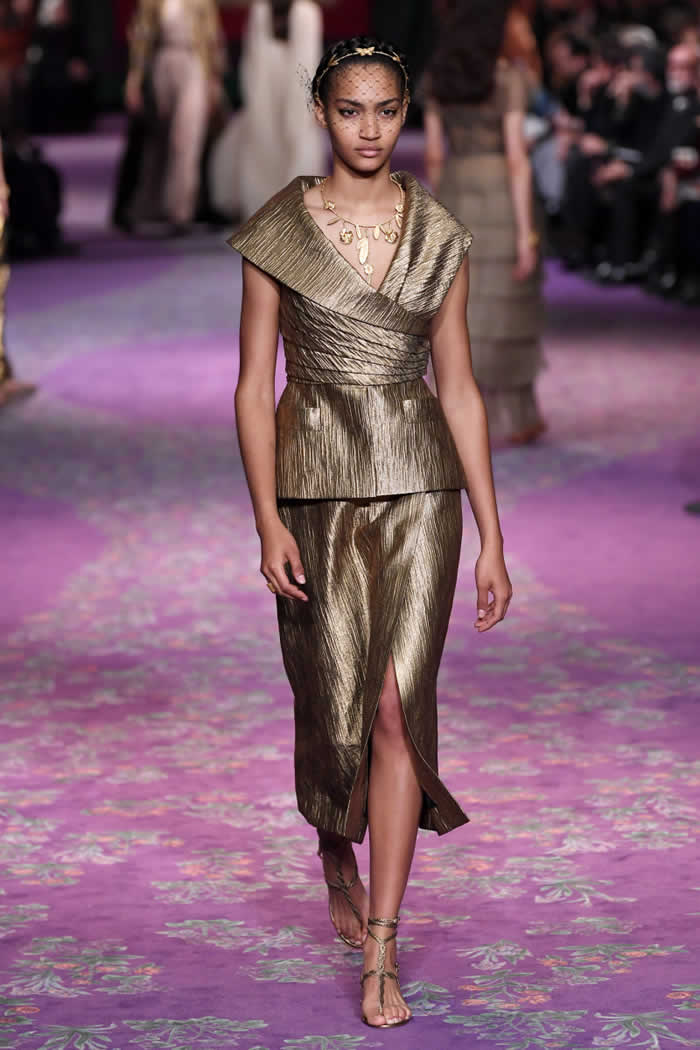Maria Grazia Chiuri isn’t the only major designer to see fashion through a feminist lens. Miuccia Prada constantly examines the role of women in society. Phoebe Philo did so over and over in her inventive designs, and before Philo, Donna Karan. (Hasn’t Donna proven prescient in so many ways?)
One would hardly label any of that trio discreet in her opinions about the cultural/political/societal connectedness between women and what we wear. Yet Chiuri may be the most unsubtle of all. She has made fashion as feminist expression the North Star of her Dior world, a world in which neither a thought nor a sketch nor a drape on a Stockman, and certainly not a fashion preview, ever starts with a pretty dress.
A dress, or 50, provides a conduit to Chiuri’s larger truth, which is her desire to use her collections as an epicentre for expression of creative feminist views. In particular, feminist art fascinates her, and for spring she enlisted the trailblazing artist Judy Chicago to create a show-space-as-major-art-piece.
The result, The Female Divine, based on an idea Chicago had back in the Seventies, is a vast, curvaceous abstracted figure of a naked woman in prone position. (Lest one thinks she/he missed something, the only complete view of the structure is an aerial one.) Installed in the garden of the Musée Rodin, the space will be open for public viewing throughout the week.
In the lead-up to the season, Chiuri became fascinated by Pietro Rigolo’s book “La Mamma,” and used it as a starting point for a study of feminism, femininity, creativity and motherhood. Childbirth, she said, is too often seen as the ultimate act of creation, a premise with which she, a mother, takes issue. “You grapple with the idea,” Chiuri said. “You look at yourself in the [context of] motherhood, and it is very difficult to explain” that it’s not always the ultimate goal. Art, and maybe even fashion, are acts of creation, each its own form of motherhood.

